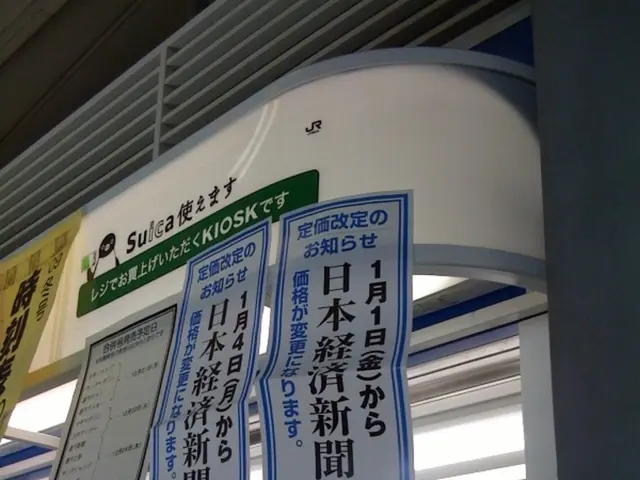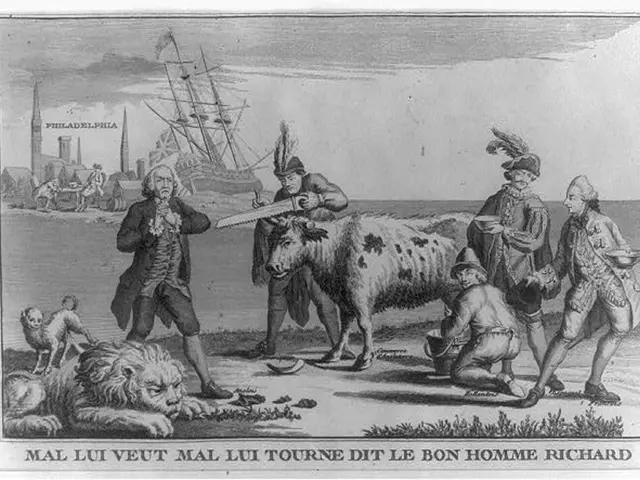Chancellor Merz on EU Course Correction: "No German Solo Action" on Border Enforcement
Border lacks a comprehensive service for all entry requirements
In a shift of gears, Chancellor Friedrich Merz reveals more stringent border enforcement measures at Germany's borders. However, he clarifies that this isn't a solo effort by Germany, but in line with European law. Merz made this statement during his visit to Brussels, following discussions with EU Council President Antonio Costa and Commission President Ursula von der Leyen.
"We're beefing up border control efforts, turning away individuals and operating like we did during the UEFA Euro Championship last year," Merz stated in Brussels.
Regarding the notion of declaring a national emergency for permanent border control, Merz rebuffed claims made in media reports. "The term 'national emergency' has been misconstrued—we're merely implementing proper border security measures, not declaring an emergency."
In a opposing stance, Commission President Von der Leyen advocated for a collaborative approach among Brussels and neighboring states. Merz conferred that the neighbors have been informed and reasserted, "there's no German solo action here."
Politics: Federal Police Brace for Increased Workload
Heating up the discussions, the "World" newspaper reported that Merz had declared a "national emergency" for the permanent control of the German borders. The government spokesman retorted the claim in the evening, citing false information.
The newly installed federal government plans to tackle unwanted migration through heightened border controls and the exclusion of most asylum seekers at the German borders. Critics contend this strategy may not agree with EU law and could jeopardize the border-free EU internal market. Nevertheless, there's support for the shift in German asylum policy, with Austria commending Germany's efforts in combating the smuggling mafia and illegal migration. Austria, though, assures adherence to existing EU law.
Merz's Demands: EU Commission Directives Revision
During the visit, Merz demanded a course correction from the EU Commission. Following a meeting with Costa and von der Leyen, Merz pressed for the abolition of the EU's supply chain directive. "We will repeal the national law in Germany, and I expect the European Union to follow this step and definitely repeal this directive," said Merz in a joint appearance with von der Leyen.
Merz claims this only scratches the surface; a general rollback of EU legislation is necessary. The new federal government is preparing to present proposals on going beyond the existing EU reform proposals. He expressed concerns that the EU Commission's postponement of directives is at best a first step; the complete abolition of certain EU directives is essential.
In a cautionary note, von der Leyen warned against the "gold-plating" in the member states, meaning the addition of further national bureaucratic requirements to EU provisions.
Both the Commission President and Chancellor applauded the need for more competitiveness and streamlining the capital market union in the EU. Both also advocated for more free trade agreements to foster economic growth. Nonetheless, this stance contrasts with former Chancellor Olaf Scholz, who frequently criticized the EU Commission for lacking enthusiasm in pursuing such agreements, especially due to excessive consideration for EU partner France.
Background on Friedrich Merz's Border Controls
Knowledge Bit: Merz's border control measures align theoretically with EU asylum law but would face challenges in respecting human rights standards if improperly implemented. The Schengen Agreement’s provisions could also come into play, considering the potential threat to public policy or internal security.
- The Commission has also been involved in the preparation of the draft directive, as Chancellor Merz demands a course correction from the EU Commission, pressing for the abolition of the EU's supply chain directive.
- In a shift of gears, Chancellor Merz and Commission President Von der Leyen discussed German border control at length during Merz's visit to Brussels, where Merz announced increased border control measures, including turning away individuals and operating like during the UEFA Euro Championship.
- Touching on the EU's border control directives, Merz argued for a general rollback of EU legislation, which could potentially impact the Schengen Agreement's provisions, considering the potential threat to public policy or internal security.
- Contrasting previous criticism towards the EU Commission, both Merz and von der Leyen now advocate for more free trade agreements, actively supporting competition and streamlining the capital market union in the EU, which forms part of the general-news discourse.








